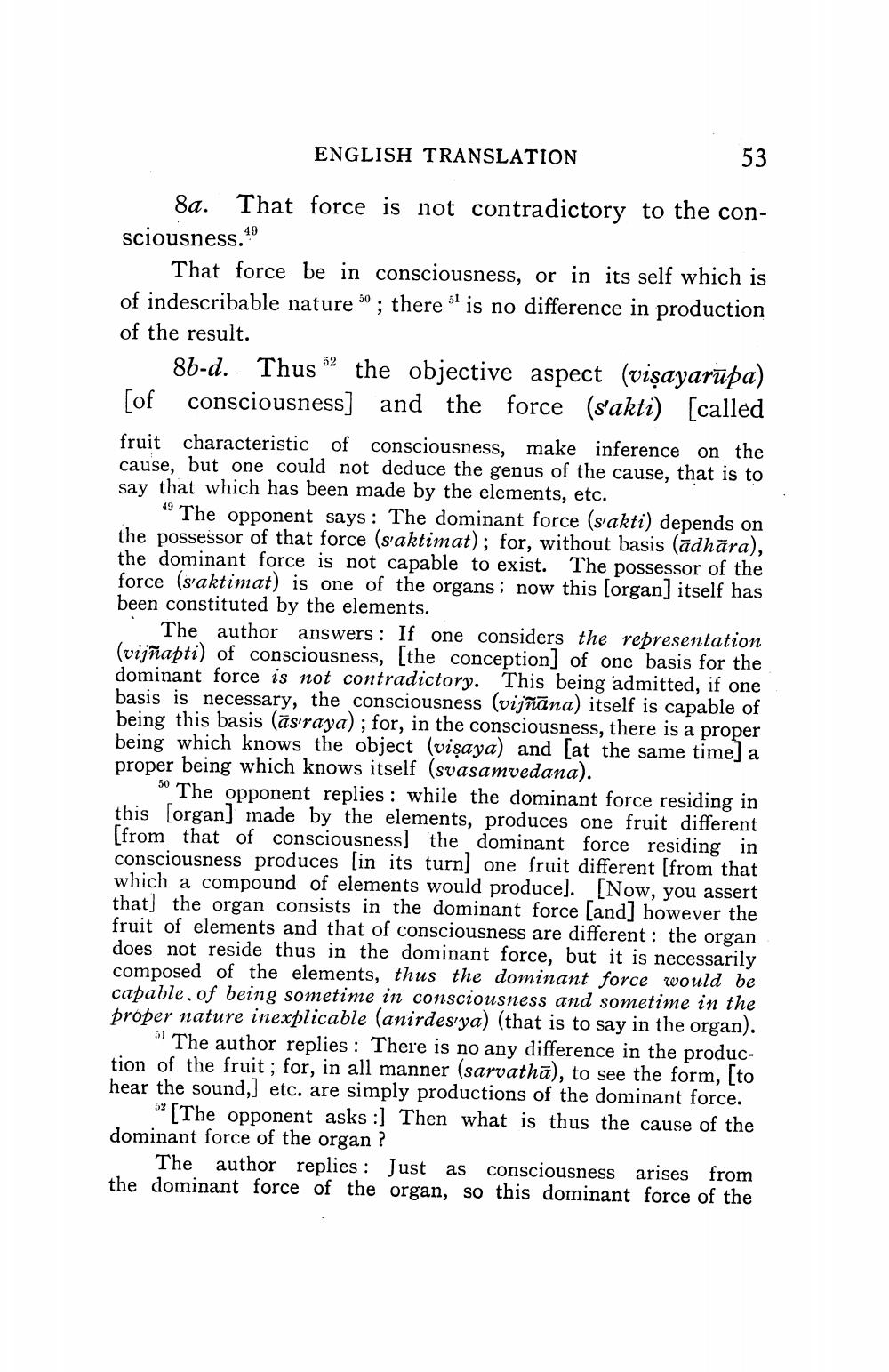________________
ENGLISH TRANSLATION
53
by the e of the one to exist without hat?! depend
8a. That force is not contradictory to the consciousness.
That force be in consciousness, or in its self which is indescribable nature 50 : there is no difference in production of the result.
86-d. Thus the objective aspect (visayarūpa) [of consciousness] and the force (s'akti) [called fruit characteristic of consciousness, make inference on the cause, but one could not deduce the genus of the cause, that is to say that which has been made by the elements, etc.
19 The opponent says: The dominant force (s akti) depends on the possessor of that force (s aktimat); for, without basis (ādhāra), the dominant force is not capable to exist. The possessor of the force (s'aktimat) is one of the organs; now this (organ] itself has been constituted by the elements.
The author answers : If one considers the representation (vijñapti) of consciousness, [the conception] of one basis for the dominant force is not contradictory. This being admitted, if one basis is necessary, the consciousness (vijñāna) itself is capable of being this basis (asraya); for, in the consciousness, there is a proper being which knows the object (vişaya) and (at the same time) a proper being which knows itself (svasamvedana).
50 The opponent replies: while the dominant force residing in this [organ] made by the elements, produces one fruit different [from that of consciousness) the dominant force residing in consciousness produces [in its turn] one fruit different (from that which a compound of elements would produce]. [Now, you assert that) the organ consists in the dominant force [and] however the fruit of elements and that of consciousness are different: the organ does not reside thus in the dominant force, but it is necessarily composed of the elements, thus the dominant force would be capable of being sometime in consciousness and sometime in the proper nature inexplicable (anirdes'ya) (that is to say in the organ).
The author replies: There is no any difference in the production of the fruit ; for, in all manner (sarvathā), to see the form, to hear the sound,] etc. are simply productions of the dominant force.
52 [The opponent asks :) Then what is thus the cause of the dominant force of the organ ?
The author replies: Just as consciousness arises from the dominant force of the organ, so this dominant force of the




